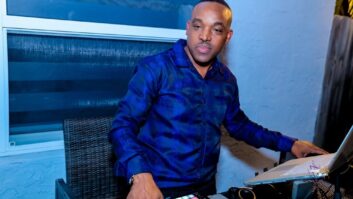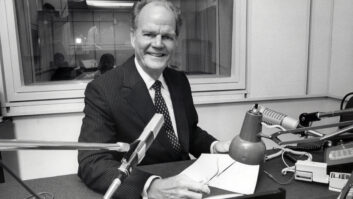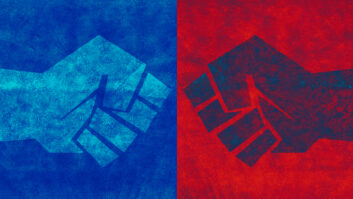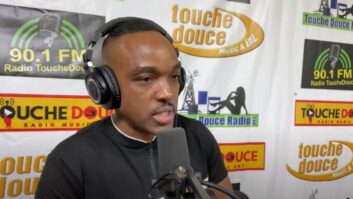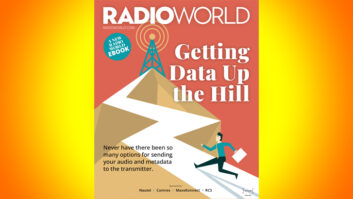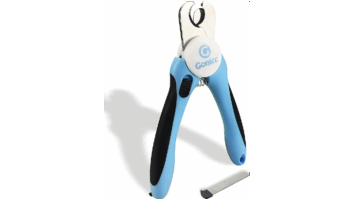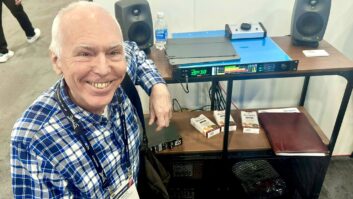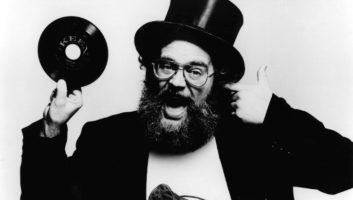
What does it mean for both the radio industry and the American listener when a DJ is replaced with a nameless, faceless digital host known as artificial intelligence?
That’s an issue facing radio stations across the country as portions of the radio industry see traditional DJs dismantled in favor of a new emphasis on A.I. In January the nation’s largest radio station owner, iHeartMedia, announced it would reshuffle its organization and technology infrastructure to achieve just that. The company laid off several hundred staffers — some estimates say it was more than 1,000 jobs — including engineers, news staff and much loved DJs.
So what exactly is American radio losing if it loses its independent DJs?
That was addressed in a segment hosted March 16 by public radio journalist Todd Zwillich on the program “1A” (which airs on NPR station WAMU). After all, do we really need to know time and traffic from a real, live individual? Or does it make smart business for radio to turn more fully to automation in place of DJs?
[Read: iHeart Defends Painful Change]
And if so, what are we losing along the way?
After all, the goal of A.I. is to do nationally what radio always did locally: connect listeners with music. A.I. can choose to play the same song on similar stations to listeners in Spokane, Wash., and in Bangor, Maine. Is it totally off-base if a company like iHeartMedia is putting on the same carefully tested music on both of those stations?
Maybe not, according to Scott Fybush, editor of NorthWest Radio Watch, who was a guest on “1A,” “ but you lose a lot of local flavor,” he said.
Radio DJs are particularly necessary in the confounding time we finds ourselves in. “In confusing times like this, who do you turn to? Friends and family of course,” Zwillich said. “But social distancing can make that really tough. A higher power? That’s not for everyone.
“But there’s one place that’s kind of built for this moment. It’s always there, it’s free and it does a great job of keeping you company. It’s the radio. More than that, it’s the person on the radio. And for generations the people who really made a mark were the DJs.”
Many listeners certainly seem to think so. “With the way commercial radio has gone … I no longer listen to commercial radio for music,” one listener told Zwillich. “There is no personality anymore.”
Personality was in full display when Zwillich then introduced his (and others) childhood radio hero to the show.
American radio broadcaster and entertainer Dr. Demento has no shortage of personality — nor any shortage of mad music and crazy comedy — when he began broadcasting his show in 1970 at Los Angeles station KPPC(FM).
“Rock music had turned very serious — wonderful but very serious — so that radio stations at that time were no longer playing ‘Monster Mash’ or ‘Purple People Eater,’” he told Zwillich. “I realized that people wanted to hear funny stuff; the novelty songs. I brought those back and people loved hearing them.”
He also launched well-known stars into the radio universe. He played early tapes that Weird Al Yankovic had made at home in his basement.
So what do we lose if radio DJs give way to A.I.? “We lose a friend that would entertain you person to person,” Dr. Demento said (who now airs his radio program online and sometimes goes by his given name of Barret Eugene Hansen). “I was always told that you were to pretend that you wanted to talk to one person. One person you know. I always did that. That’s what a lot of disc jockeys did.”
Radio DJs are significant because they keep you entertained, they keep you going, they fill your day with music, he said.
“A.I. will have the same trouble doing that with the same warmth,” he said.
Powerful DJ voices can still be found, of course. Fybush estimates that although there are probably fewer DJs across the U.S. now than there were 20 years ago, their voices can be found in many places such as college radio stations and on public radio. There are also smaller locally owned stations and a number of music discovery stations out there that are churning out creative, original work, he said. In addition, a growing number of DJs are delving into podcasting as a means of producing creative programming.
“[They are] far from dead,” Fybush said. “I don’t want to talk about the death of the American DJ yet.”
Radio also remains a place where people discover their favorite songs, said Tuma Basa, director of urban music at YouTube. “I believe that radio still has that role,” he said. “People have more choices but it’s not anywhere close to the obsolescence that some operations in the digital world try to present.”
Another key role for the DJ is tastemaker. In many markets, DJs had an enormous amount of sway as to what is on the air. Today in the urban radio market, a DJ still retains a lot of autonomy in terms of playing records in their mix shows and introducing new artists.
“You can’t replace the human,” Basa said. “It’s the difference between a home-cooked meal and McDonalds.”
And as Zwillich said, wherever you go across the country you’ll find that a Big Mac is a Big Mac. That has some value certainly, especially as the radio industry continues to evolve.
“But you lose something if you’re a connoisseur of hamburgers,” he said.
